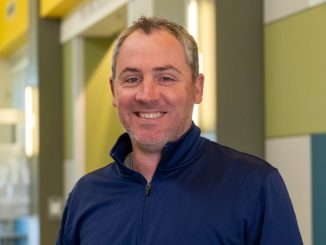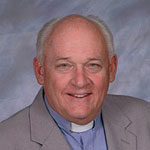
Bishop Sheldon Fabre wrote a Pastoral Letter during Advent entitled “A Reason to Hope.” The following is the first chapter of his Pastoral abbreviated for this column.
We are all searching. Some of us are searching for happiness, some are searching for direction, and others are searching for comfort in the midst of life’s struggles. What we all have in common is that we are all searching for something.
Many of us would say we are happy. We count our blessings daily and we acknowledge that we are where we want to be in life. Some are happy, but we might also admit that we are tired.
We feel the effects of trying to keep everything going. For some, the pace necessary to maintain our lifestyles can be overwhelming. In our fatigue we wish we had more time to enjoy the “good things” in life rather than maintaining the hectic pace of activities that compete for our time. Others may not know what, but we do know we want more out of life.
We are not convinced we are flourishing at the present moment and perhaps we worry about our future. When we slow down, we hear the questions: “Where am I heading?” “Where will life eventually bring me?” “Is there more to life than what I am experiencing?”
If we ask most people “What do you want out of life?” we will most likely hear them respond, “I want to be happy.” If we pay attention, we see that our everyday decisions are often influenced by what we think will make us happy, from the food we eat to the way we choose to spend our free time.
Our ordinary, everyday happiness is influenced by many things outside of our control: the weather, traffic, the news, the disposition of other people, and whether the day meets our expectations. Our wanting to be happy can determine the jobs we choose, the hours we work, and how much time we spend with those we love. It can affect the way we medicate through addictions or other self-centered behavior. Our wanting to be happy can determine how we respond to adversity, how we handle our current economic crisis, how we endure marital difficulty, and if we persevere through mid-life crisis.
The human person is a divinely created body and soul. We have immortal souls in our mortal bodies. St. Paul teaches us that “our citizenship is in heaven.” There is an eternal reality to our temporary existence. We are not going to live on earth forever; we were never intended to. The nature of our soul is such we cannot satisfy our supernatural thirst through natural means alone. While on this earth, we will always long for more because the human person is not merely a physical body. On the other hand, Jesus himself says: “I have told you this so that my joy may be in you and your joy may be complete.” God wants us to be happy, to be filled with joy. Our lives are not meant to be something to be endured here on earth with hopes that we can “finally get to heaven.”
St. Augustine wrote: “We all want to live happily . . . How is it, then, that I seek you, Lord? Since in seeking you, my God, I seek a happy life.” Augustine might say that the question is not “Do I want to be happy?” The real question is “Where do I turn?” Does the desire for happiness lead me outward into relationship and the supernatural or do I turn inward, grasping to find something to make me happy? There is a difference between happiness in God versus what our culture offers. They differ in source and duration.
Christian happiness is rooted in the supernatural, not circumstances. It runs deeper than emotion and lasts longer than the spontaneous. Searching for happiness is natural.
The question is: where am I looking?





Be the first to comment